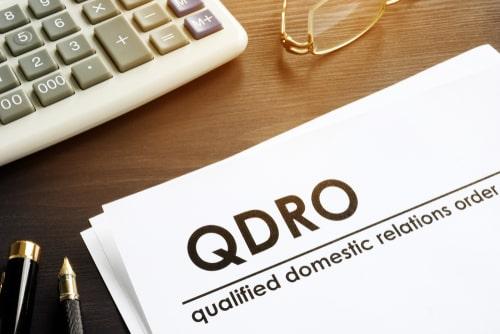 630-393-3111
630-393-3111
4200 Cantera Drive, Suite 200 | Warrenville, IL 60555
Recent Blog Posts
When Can a Prenuptial Agreement Be Invalidated?
 In many modern marriages, prenuptial agreements are used to provide spouses with protection and make decisions about how certain issues will be addressed if the couple chooses to get a divorce. A prenup can make sure spouses can continue to own certain types of property after their divorce, or it can decide whether a spouse will receive spousal maintenance. A properly executed prenuptial agreement can help spouses avoid uncertainty during their divorce and make sure their financial interests will be protected. However, if disputes arise about the terms of a prenup, spouses should be aware that there are certain issues that may cause an agreement to be invalid.
In many modern marriages, prenuptial agreements are used to provide spouses with protection and make decisions about how certain issues will be addressed if the couple chooses to get a divorce. A prenup can make sure spouses can continue to own certain types of property after their divorce, or it can decide whether a spouse will receive spousal maintenance. A properly executed prenuptial agreement can help spouses avoid uncertainty during their divorce and make sure their financial interests will be protected. However, if disputes arise about the terms of a prenup, spouses should be aware that there are certain issues that may cause an agreement to be invalid.
Enforceability of Prenuptial Agreements
When a couple signs a prenup before getting married, this indicates that they both understand the terms of the agreement and are satisfied with the decisions made. However, disputes can sometimes arise during a divorce in which a spouse may claim that the agreement should not be enforced. When these types of disputes are addressed through litigation, there are only a few reasons why a prenup may be found to be invalid. These include:
Updated: When You Can Extend Child Support Beyond Age 18?

UPDATE: In most cases, non-minor support that is paid after a child reaches the age of 18 is related to college expenses and other costs involved in the child's post-secondary education. Parents who are looking to make sure their child will have the necessary financial resources to pursue a college education will want to understand exactly what types of expenses this support will cover.
Parents may agree on the amount they will each contribute toward their children's college expenses, or a court may order non-minor support to be paid based on the property owned by the parents or the income they earn. After determining an appropriate amount that parents should contribute, this amount will be equitably divided between the parents.
Applicable college expenses may include:
- The costs of tuition and any required fees. The maximum amount that parents may be legally required to contribute is the costs of tuition and related fees for an in-state student during that academic year at the University of Illinois at Urbana-Champaign.
When Is a QDRO Used to Divide Assets Between Divorcing Spouses?
 Spouses need to address many different types of legal and financial matters when getting divorced, and attempting to understand the laws that apply to them and the terminology used in their case can sometimes be overwhelming. Spouses who own assets such as retirement accounts or pensions may have heard that they should use a qualified domestic relations order (QDRO). By understanding what this type of order covers and when it should be used, spouses can make sure they will be able to divide their marital assets correctly while addressing any related financial issues.
Spouses need to address many different types of legal and financial matters when getting divorced, and attempting to understand the laws that apply to them and the terminology used in their case can sometimes be overwhelming. Spouses who own assets such as retirement accounts or pensions may have heard that they should use a qualified domestic relations order (QDRO). By understanding what this type of order covers and when it should be used, spouses can make sure they will be able to divide their marital assets correctly while addressing any related financial issues.
Using a QDRO to Divide Retirement Assets
All assets acquired by spouses during their marriage will need to be fairly and equitably divided during the divorce process. In addition to physical property, assets may include retirement savings or benefits that may not be accessible by the spouses at the time of their divorce. Contributions made by a spouse to a retirement savings account or pension benefits that a person earned while married may need to be divided either at the time of divorce or in the future.
How Long Will Spousal Maintenance Be Paid After My Divorce?
 While it is not ordered in every divorce case, spousal maintenance (which may also be known as alimony or spousal support) can be an important factor for some couples. This form of financial support will allow a spouse who relied primarily on their partner’s income during their marriage to support themselves and maintain their lifestyle. However, spousal maintenance will usually only last temporarily, so it is important to understand when it will end and make plans accordingly.
While it is not ordered in every divorce case, spousal maintenance (which may also be known as alimony or spousal support) can be an important factor for some couples. This form of financial support will allow a spouse who relied primarily on their partner’s income during their marriage to support themselves and maintain their lifestyle. However, spousal maintenance will usually only last temporarily, so it is important to understand when it will end and make plans accordingly.
Types of Spousal Maintenance
Depending on a couple’s situation, different types of spousal support may be awarded, and the type of maintenance will affect how long it will be paid. These types include:
-
Temporary maintenance - One spouse may be required to pay support to the other during the divorce process to ensure that they will be able to cover their ongoing expenses. These payments will be terminated when the divorce is finalized, and at that point, any support arrangements included in the divorce decree or judgment will go into effect.
How Should Parenting Time Be Addressed in My Parenting Plan?
 If you are a parent who is getting divorced, issues related to your children will be some of the most important matters that you will need to resolve. As you work to negotiate a divorce settlement with your spouse, you will create a parenting plan that fully details all decisions related to the allocation of parental responsibilities (child custody) and parenting time (visitation). The determination of how you and your spouse will divide the time that your children will spend in each of your homes will affect many other issues in your case, so you will want to make sure you have addressed this issue properly and made arrangements that will provide for your children’s best interests.
If you are a parent who is getting divorced, issues related to your children will be some of the most important matters that you will need to resolve. As you work to negotiate a divorce settlement with your spouse, you will create a parenting plan that fully details all decisions related to the allocation of parental responsibilities (child custody) and parenting time (visitation). The determination of how you and your spouse will divide the time that your children will spend in each of your homes will affect many other issues in your case, so you will want to make sure you have addressed this issue properly and made arrangements that will provide for your children’s best interests.
Common Parenting Time Arrangements
There are a multitude of different ways that parents can divide parenting time. When making these decisions, parents should consider the roles that they have played when caring for their children in the past, the feasibility of a proposed schedule, and how they can maintain consistency for their children and work together as co-parents to meet their needs. Some common ways of dividing parenting time include:
Can the IRS Make Me Pay My Ex-Spouse’s Tax Debts After Our Divorce?
 Even if you and your spouse own significant assets, you may experience financial difficulties after your divorce. This can occur because of large costs during the divorce process, due to wasting or dissipation of assets by one spouse, or because you have trouble covering your ongoing expenses on a single income. The situation can become even worse if the IRS informs you that you owe money based on tax returns that were filed while you were married. Fortunately, you may have options for addressing this issue and ensuring that you will not be penalized for your spouse’s actions.
Even if you and your spouse own significant assets, you may experience financial difficulties after your divorce. This can occur because of large costs during the divorce process, due to wasting or dissipation of assets by one spouse, or because you have trouble covering your ongoing expenses on a single income. The situation can become even worse if the IRS informs you that you owe money based on tax returns that were filed while you were married. Fortunately, you may have options for addressing this issue and ensuring that you will not be penalized for your spouse’s actions.
Understanding Post-Divorce Tax Debts and Innocent Spouse Relief
Both you and your ex-spouse are responsible for taxes on any joint tax returns you filed while you were married. This means that if the IRS decides to audit you based on any of these tax returns and it determines that taxes are owed, it can take action to collect the amount owed from both you and your spouse. Even if your divorce decree states that your spouse will be solely responsible for these tax debts, the IRS can disregard the court’s orders in these matters and collect money from both of you.
Read Our Top 20 Family Law Blogs for 2020
 Every year, we publish dozens of blogs about a wide variety of topics related to divorce and family law. Our goal is to provide people with helpful information about issues that they may need to address when getting divorced, settling disputes over marital property or child custody, or handling other matters in family court. Our most popular blogs that people have read over the past year have covered many areas of the law and other issues that affect families, and we encourage you to read these articles and share them with those who may find them helpful:
Every year, we publish dozens of blogs about a wide variety of topics related to divorce and family law. Our goal is to provide people with helpful information about issues that they may need to address when getting divorced, settling disputes over marital property or child custody, or handling other matters in family court. Our most popular blogs that people have read over the past year have covered many areas of the law and other issues that affect families, and we encourage you to read these articles and share them with those who may find them helpful:
-
When You Can Extend Child Support Beyond Age 18 - We look at when divorced parents may be required to contribute to their children’s college expenses or provide other forms of financial support.
How to Protect Against Asset Dissipation During Your Divorce
 When you get divorced, you will likely be concerned about your finances. Shifting from sharing financial resources with your spouse to supporting yourself on a single income can be a difficult adjustment, and the decisions made about how you and your spouse will divide your marital assets can also affect the resources that will be available to you. Unfortunately, these issues can become even more complicated and difficult if your spouse has spent, wasted, or destroyed your marital property or if you are worried that they plan to do so. However, with the help of a skilled attorney, you can protect against the dissipation of marital assets and make sure you will have the financial resources you need.
When you get divorced, you will likely be concerned about your finances. Shifting from sharing financial resources with your spouse to supporting yourself on a single income can be a difficult adjustment, and the decisions made about how you and your spouse will divide your marital assets can also affect the resources that will be available to you. Unfortunately, these issues can become even more complicated and difficult if your spouse has spent, wasted, or destroyed your marital property or if you are worried that they plan to do so. However, with the help of a skilled attorney, you can protect against the dissipation of marital assets and make sure you will have the financial resources you need.
What Is Asset Dissipation?
If one spouse uses marital funds or property for their sole benefit and for purposes unrelated to their marriage during the period where the marriage is undergoing an irretrievable breakdown, this is considered asset dissipation. For example, a spouse could spend marital funds while pursuing an extramarital affair, such as by buying gifts for someone other than their spouse or going on trips with that person and paying for plane tickets, hotel rooms, and meals. Dissipation could also include spending money on gambling or to further a drug addiction, buying expensive items solely for one’s own benefit, or intentionally destroying property.
How Will Parental Relocation Affect My Parenting Plan?
 Following your divorce, it is likely that you or your ex-spouse will plan to move to a new home at some point. This is a normal activity, and a relocation may be planned for multiple reasons, such as to begin a new job, to be closer to family or a new partner, or to live in a larger, more comfortable home. However, parents should be aware that a move may require them to make changes to their parenting plan, and in certain cases, they will need to get approval from the court to complete a parental relocation.
Following your divorce, it is likely that you or your ex-spouse will plan to move to a new home at some point. This is a normal activity, and a relocation may be planned for multiple reasons, such as to begin a new job, to be closer to family or a new partner, or to live in a larger, more comfortable home. However, parents should be aware that a move may require them to make changes to their parenting plan, and in certain cases, they will need to get approval from the court to complete a parental relocation.
When Is Approval Required for Parental Relocation?
A move to a new home is only considered parental relocation if a parent who has the majority of parenting time or shares equal amounts of parenting time plans to move to a new home a certain distance away from the child’s current home. For those who live in counties around the Chicago area (Cook, DuPage, Kane, Will, Lake, or McHenry), a move of at least 25 miles will be considered a relocation. Relocation rules will also apply to a move of 50 miles or more from another Illinois county or a move of at least 25 miles to a location outside of Illinois.
When Can I Modify My Illinois Child Custody Order?
 Divorced parents will usually share custody of their children, and when doing so, they will follow the parenting plan that was included as part of their divorce decree or judgment. This document will address the allocation of parental responsibilities (commonly known as “legal custody”), and it will include schedules for parenting time (also referred to as “physical custody” or “visitation”). A parenting plan will provide a framework for how parents will work together to raise their children. Because parents’ and children’s lives may change in the years following a divorce or breakup, modifications to child custody arrangements may be needed. Parents should be sure to understand when these types of changes may be made and the steps they will need to take to do so.
Divorced parents will usually share custody of their children, and when doing so, they will follow the parenting plan that was included as part of their divorce decree or judgment. This document will address the allocation of parental responsibilities (commonly known as “legal custody”), and it will include schedules for parenting time (also referred to as “physical custody” or “visitation”). A parenting plan will provide a framework for how parents will work together to raise their children. Because parents’ and children’s lives may change in the years following a divorce or breakup, modifications to child custody arrangements may be needed. Parents should be sure to understand when these types of changes may be made and the steps they will need to take to do so.


 4200 Cantera Drive, Suite 200, Warrenville, IL 60555
4200 Cantera Drive, Suite 200, Warrenville, IL 60555 630-393-3111
630-393-3111





